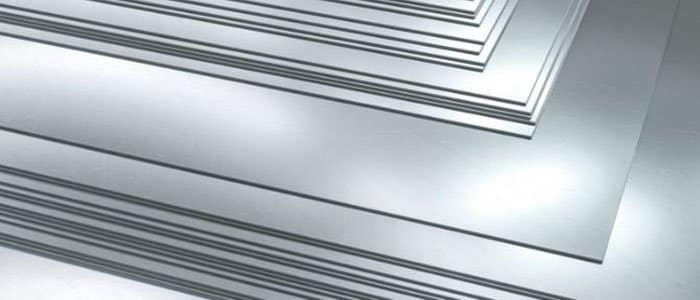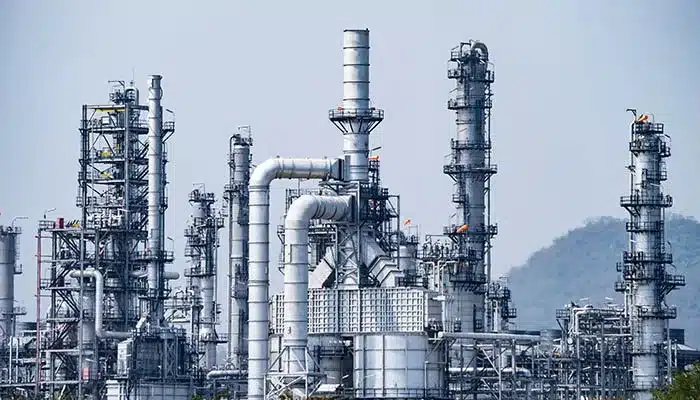When choosing highly corrosion-resistant metal materials, Grade 5 titanium alloy and Inconel 718 alloy are the two most commonly used grades among titanium-based alloys and nickel-based alloys, respectively. So, what are the differences between these two alloys, and how can you choose the corrosion-resistant material that best suits your needs? This blog will provide a detailed analysis of the advantages of each alloy to help you make a better choice.
Inconel Alloy and Titanium Alloy Overview
What is Inconel 718 Alloy?
Inconel is a trademark owned by Special Metals Corporation in the United States. It represents a class of high-performance nickel-based superalloys. Inconel alloys are based on a nickel matrix (typically containing over 50%), with significant additions of chromium (for excellent oxidation and corrosion resistance), as well as other elements such as molybdenum, niobium, iron, cobalt, aluminum, titanium, and tungsten. Known for their exceptional strength, oxidation resistance, and corrosion resistance even under extreme temperatures, pressures, and corrosive environments, Inconel alloys are widely used in cutting-edge applications such as aerospace engines, nuclear reactors, and the petrochemical industry.
Inconel 718, the most representative precipitation-hardening nickel-chromium-iron alloy in the family, achieves a perfect balance of ultra-high strength, excellent weldability, good machinability, and reliable corrosion resistance across a wide temperature range of -253°C to 700°C through a unique strengthening mechanism of niobium, titanium, and aluminum. It has become a cornerstone material for critical components such as turbine disks and compressor blades in modern aircraft engines, and an indispensable core structural material in high-end industrial sectors.
What is Grade 5 Titanium?
Grade 5 Titanium (also known as Ti-6Al-4V) is a high-performance titanium alloy composed of 90% titanium, 6% aluminum, and 4% vanadium. It is renowned for its exceptional strength-to-weight ratio, excellent corrosion resistance, and good heat-treatability. With a density only 60% of steel, it achieves strength comparable to some steel grades, making it an ideal choice for applications in aerospace, medical implants, marine equipment, and high-performance automotive parts.
Core performance comparison
Mechanical Properties
| Property | Grade 5 Titanium | Inconel 718 |
| Tensile Strength | 860-1,000 MPa | 1,275-1,380 MPa |
| Yield Strength | 795-880 MPa | 1,030-1,170 MPa |
| Density | 4.43 g/cm³ | 8.19 g/cm³ |
| Melting Point | 1,660°C | 1,260-1,340°C |
| Elongation | 10-15% | 12-23% |
Temperature Capabilities
Grade 5 titanium performs admirably in moderate temperature environments but begins to experience significant property degradation above 400°C. In contrast, Inconel 718 maintains its mechanical integrity at temperatures nearly twice as high, making it the clear choice for extreme heat applications.
Corrosion Resistance
Both materials offer excellent corrosion resistance, but through different mechanisms. Grade 5 titanium relies on its protective oxide layer, while Inconel 718’s nickel-chromium matrix provides inherent resistance to a broader range of corrosive media, particularly at elevated temperatures.
Application scenarios: different application fields
Grade 5 Titanium (Ti-6Al-4V): High Strength & Low Weight
Aerospace Structures: Favored for aircraft frames, landing gear components, and fasteners where its exceptional strength-to-weight ratio reduces fuel consumption.
Medical Implants: The gold standard for orthopedic implants (hips, knees, spinal fusion) and dental fixtures due to outstanding biocompatibility and corrosion resistance in the human body.
High-Performance Automotive: Used in connecting rods, valves, and exhaust systems for racing and supercars, leveraging lightweight strength and heat resistance.
Marine Components: Ideal for propeller shafts, heat exchangers, and submarine parts where seawater corrosion resistance is critical.
Inconel 718: The High-Temperature Workhorse
Jet Engine Components: Essential for turbine discs, blades, casings, and exhaust systems operating under extreme heat (up to 1300°F / 700°C) and stress.
Oil & Gas Downhole Tools: Premier choice for drill collars, safety valves, and completion equipment exposed to high-pressure, high-temperature (HPHT) wells and sour gas corrosion.
Nuclear Reactors: Used in reactor core components and control rod mechanisms due to exceptional high-temperature strength and radiation resistance.
Heat Treatment Fixtures: Withstands repeated thermal cycling in furnaces without significant deformation or degradation.
Conclusion
Selecting between Grade 5 Titanium and Inconel 718 ultimately depends on your specific application requirements and operational environment. Grade 5 Titanium stands out with its exceptional strength-to-weight ratio and biocompatibility, making it the preferred choice for aerospace structures, medical implants, and marine applications where weight reduction and corrosion resistance are paramount.
In contrast, Inconel 718 excels in extreme temperature and pressure environments, offering unparalleled heat resistance, creep strength, and oxidation protection. This makes it indispensable for jet engine components, oil and gas drilling equipment, nuclear reactors, and high-performance automotive systems.
For more information on these materials or to discuss your specific requirements, contact our materials specialists at Daxun Alloy. We’re committed to providing the highest quality alloys backed by technical expertise to ensure your project’s success.




